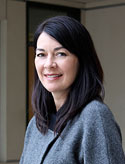RELATIONSHIPS
Romantic relationships can be very difficult, yet very rewarding at the same time. College can be a time where students enter into various types of relationships with different partners. Maintaining healthy relationships can also be difficult at times with the many demands that college students face.
TIPS FOR HAVING HEALTHY RELATIONSHIPS
Clarifying expectations within your relationship can be very helpful in improving communication. However, this can be difficult, as it indicates that you may need to be vulnerable and take a risk. There is certainly no requirement to have a talk about your relationship status.
However, as an example, if one partner thinks that you both are exclusively only seeing each other while the other partner does not, it can lead to problems.
Clarifying other types of exceptions can be very helpful as well. As examples:
- Is there an expectation that you both speak on the phone every night?
- That you meet one partner’s friends but not the other’s?
- That one person decides more often where to go for meals than the other one?
These do not necessarily all have to be discussions ahead of time, however if there appears to be a difference in opinion it can be helpful to process and clarify what each partner expects.
Some couples may find that it is very difficult when they disagree in general. Some may feel like their relationship may be having problems when there are multiple disagreements. While their could be truth to that in certain cases, a much more predictive factor is how they disagree.
Most healthy relationships have disagreements and much of the time they cannot come to a full agreement on the issue. However, they are able to navigate through this in a manner that shows assertiveness and respect. Being able to successfully get through disagreements is much more important than having the disagreements itself.
Many of us learn about healthy relationship from growing up. Some people may have had a mother and father who modeled very healthy interactions. Others may not have known one or both biological parents, but their primary caregivers modeled positive relationships. Others may have grown up in abusive homes and viewed how any conflict in their home could escalate into violence.
Here are some questions to ask:
- How was conflict handled in my home growing up?
- How was anger expressed?
- How did my primary caregivers express affection to each other?
- Did my family talk about emotions? How so?
- How were roles within a romantic relationship viewed? (e.g. in cisgender heterosexual couples, were men and women expected to act in certain ways?)
- How was the type of relationship I am having viewed in my home? (e.g. LGBTQ+, casually dating, difference of opinion on intimacy at different stages, etc.)
After reviewing these questions, answer the questions for yourself. See if there are patterns or changes you would like to make.
THREE STRATEGIES TO TRY TODAY
If you would like to learn more about treatment options to improve your healthy relationship skills, please contact C&PS at (619) 594-5220 to learn more today. Please note that we do offer couples therapy and that only one partner needs to be a current SDSU student.
